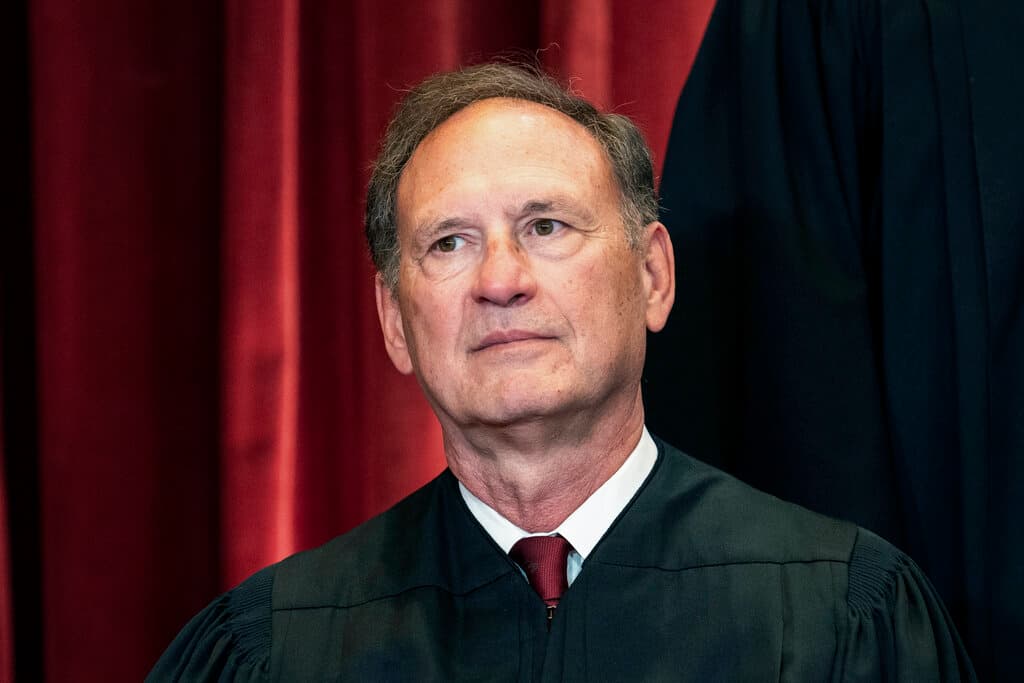Does the 13th Amendment Guarantee a Right to an Abortion?
A law professor calls the judge’s suggestion that the constitutional status of abortion could be an open question ‘shocking.’

The story of the Constitution and abortion could yet have another chapter, or amendment. That possibility snapped into focus via a federal district judge’s order for briefing on whether a constitutional right to an abortion could yet be found not in the 14th Amendment, but in the 13th.
While the 14th Amendment’s guarantees of “equal protection of the laws” and “due process of law” have long been subject to litigation and interpretation — including in Roe v. Wade and Dobbs v. Jackson Women’s Health — the 13th Amendment is seemingly more straightforward.
That provision reads that “neither slavery nor involuntary servitude, except as a punishment for crime whereof the party shall have been duly convicted, shall exist within the United States, or any place subject to their jurisdiction.” While it has occasionally been cited in human trafficking law and in relation to anti-lynching legislation, its salience has long been seen as confined to abolition.
Judge Colleen Kollar-Kotelly issued the request in a criminal case against activists for conspiring to block access to a Washington, D.C., abortion clinic. One of the defendants argued that in a post-Dobbs legal world, the conspiracy charge is irrelevant due to the absence of a wider right to an abortion.
In Dobbs, Justice Samuel Alito wrote that the Constitution “does not confer a right to abortion.” However, Judge Kollar-Kotelly muses that the statement could be merely a “heuristic” because the “‘issue’ before the Court in Dobbs was not whether any provision of the Constitution provided a right to abortion.”
Instead, the judge noted that the “question before the Court in Dobbs was whether the Fourteenth Amendment to the Constitution provided such a right,” which is why “neither the majority nor the dissent in Dobbs analyzed anything but the Fourteenth Amendment.” Rather than encompass all of the national parchment, the case covered just one sliver of it.
Given the justices’ focus in Dobbs, Judge Kollar-Kotelly wonders whether that case’s holding is “confined to the Fourteenth Amendment” and “whether, if so, any other provision of the Constitution could confer a right to abortion as an original matter.” She speculates that the “Court might have held in Dobbs that some other provision of the Constitution provided a right to access reproductive services.”
A law professor, Joshua Blackman, called the judge’s suggestion that the constitutional status of abortion could be an open question “shocking.” He noted that “judges are not happy with Dobbs and are trying to find anything to resist the decision,” at both the state and federal levels.
He views it as part of a “massive resistance” effort by lower courts to the high court’s abortion jurisprudence, and predicts similar tactics to be deployed against New York State Rifle & Pistol Association, Inc. v. Bruen (gun rights) and, eventually, Students for Fair Admission v. Harvard (affirmative action).
The intellectual ballast for the judge’s curiosity comes from a law review article by Andrew Koppleman that links abortion and the 13th Amendment. The professor gestures toward the daring nature of the claim, warning that if “you want to be taken seriously, you had better not make a Thirteenth Amendment argument on behalf of abortion.”
Mr. Koppelman goes on to do just that, arguing that “when women are compelled to carry and bear children, they are subjected to ‘involuntary servitude’ in violation” of the 13th Amendment. “Forcing women to be mothers,” he reasons, “makes them into a servant caste, a group which, by virtue of a status of birth, is held subject to a special duty to serve others and not themselves.”
The professor explains that if, according to the 13th Amendment, “citizens may not be forced to surrender control of their persons and services, then women’s persons may not be invaded and their services may not be coerced for the benefit of fetuses.” The clause, he writes, “draws no distinction between the powers of a man’s back and arms and those of a woman’s uterus.”
Mr. Koppelman shared with the Sun his belief that Dobbs “just addresses substantive due process questions,” making Justice Alito’s more sweeping statements non-binding dicta. “The court,” Mr. Koppelman notes, is not possessed of the omnipotence of the “Lord speaking to Job out of the whirlwind.” That is the difference, he adds, “between Samuel Alito and Vladimir Putin.”
The Sun spoke to a veteran abortion litigator, James Bopp Jr., who calls the effort to read abortion into the 13th Amendment a “bizarre perversion.” He sees it as a reading “with no interest in the meaning of words,” given that abortion is downstream from “having sex” rather than “coercion.” Given the amendment’s Civil War context, he terms its expansion to cover pregnancy “insane.”
The Sun also spoke to a longtime Harvard law professor, Alan Dershowitz, who labeled the effort “a stretch” that “diminishes the horrors of slavery.” The Framers, he contends, “didn’t think of abortion,” and he advises that the most “constructive” course lies in the realm of state constitutions. He sees in the Fourth Amendment’s “right of the people to be secure in their persons” a better fit for those seeking a textual basis for the right to terminate a pregnancy.
Judge Kollar-Kotelly requests responses from the anti-abortion activists and the Department of Justice by the middle of March. It is not yet known whether the government will argue that the 13th Amendment conveys the right to abortion. The DOJ did not return to a request for comment.

